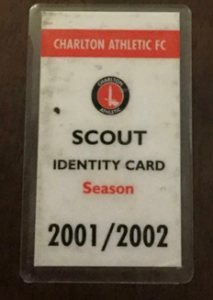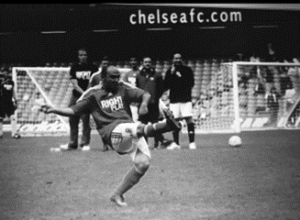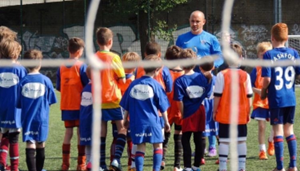Tony Hassan was a professional scout with Millwall for two years and Charlton when they were in the Premier League. Fourteen years ago, he quit his role as a scout to set up his own football school ‘Socceroonies’ where his unique style of coaching attracted interest from one of the top clubs in England. He also spoke to us about the struggles young football players have when being released at a young age.
Can you tell me a bit about yourself on what you have done in the past and what you are doing now with Socceroonies?
TH: “When watching my son play football on the council estate flats, the manager of the team recognised me from when I played for Enfield and asked me to help. The team went unbeaten that season and conceded two goals in all competitions. In this team seven signed to academies and three went on to become professional players.

I then became head of North London Coaching Scout for two years at Millwall and was poached by Charlton in the Premier League to do the same job. After scouting and managing at Charlton for years I became disillusioned by the way kids are being coached so I quit.
Socceroonies is designed for kids who feel ostracised at school, which will boost their confidence when they’re in the playground. For the last five years the parents and kids play together which develops relationships. At the end of the session the parents and the kids play a game and if the kid scores they will get a prize e.g., a bag of sweets and if the adults score, they will do the chores. This style of coaching is unique and no one else is doing it and attracted the interested from Newcastle United but we were unable to reach an agreement.”
From all the children who play in academies at the age of nine, fewer than 1% will make it professional at any level of the game. Why can kids turn to crime when being released?
TH: “The players do not intend to turn to crime, it is all about acceptance. The problem with late teenagers in the youth teams, they will start living the flash life, buying expensive clothes, trainers, and jewellery. Also, the senior players used to look after the youth team as they gave them their old designer clothes.
So, when the get released, they want to feed the habit of lifestyle they are used to; it is like giving someone their first cigarette. Most of the players in the area are from poor and single parent families and they are unable to fund that lifestyle so they may go down the path of crime.”
Has the education system failed some kids?
TH: “It is not the education system that has failed the kids, it is the parents not taking the right steps to protect them e.g., make sure their education is priority. The parents who say ‘Don’t worry son you will be a footballer anyway’ they are more likely to be failed players themselves after a quick buck and who are trying to relive their career through their kids.”
Is there enough government funding for grass-roots football and if not, how do you receive this funding?
TH: “I am lucky enough to have a sponsor who pays for the balls, kits and goals but I run Socceroonies at a loss or sometimes I break even. But the real reward is watching kids who maybe feel left out or bullied in the playground grow in confidence and building relationships. The benefit is giving the kids the opportunity I didn’t have as a kid.”

In regard to the recent case of Manchester City academy player Jeremy Winsten who committed suicide when being released. What changes have been made or could be made for mental health with kids being released?
TH: I am aware of mental health and guidance programmes Premier League clubs have set up when they get released. You may be lucky that you have a family business to fall back on if this happens so then you can play semi-professional football and make your way back up through non-league. I compare it to a breakup of a marriage, until you find someone else, you’re at a loss. The 3 players I coached growing up who became professional still ask for my advice and I am always at the phone if they need me.
Have you seen a change in the way kids are coached and managed?
TH: “Yes, I have changed the way that I have managed because you must take into consideration mental health. Coming back from lockdown kids maybe fragile so I do encourage them to cry but only if they are really hurt. However, some stubborn coaches will not change. That is the reason I left Charlton Academy because I saw kids training with their heads down and didn’t feel special. So, my philosophy now is if a kid turns up to training upset to be there the parent should not bring him. I want him to be upset that training is over. At the start of every session, I say Eyes and teeth’. The eyes so they are paying attention and teeth so I can see the smiles on their faces.”




